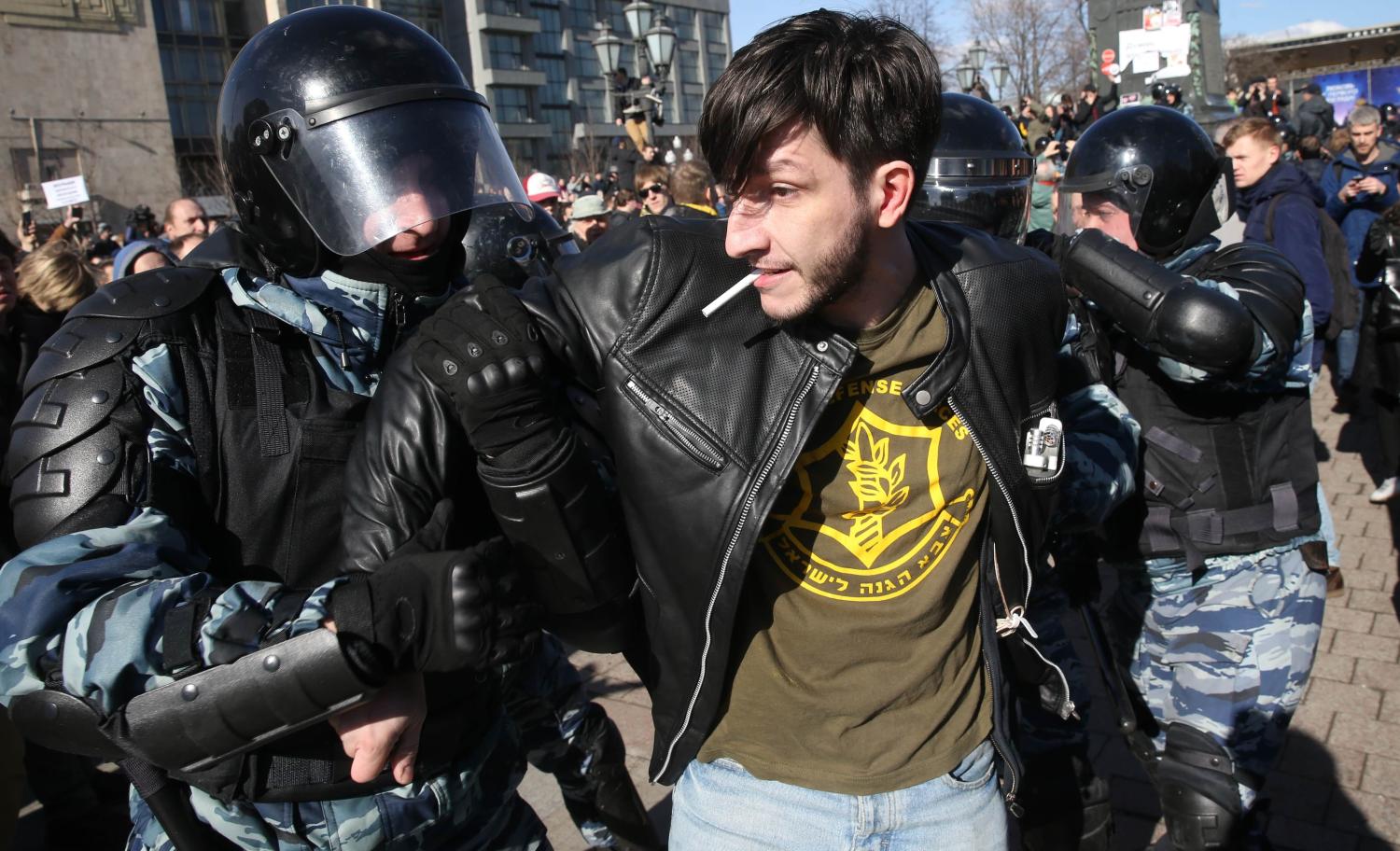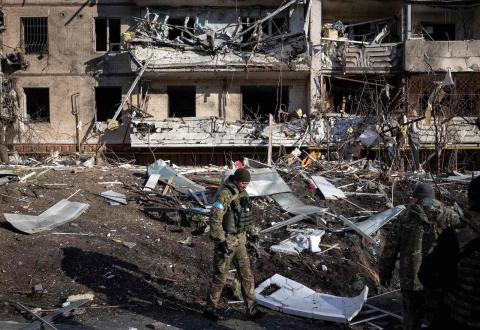The demonstrations that took place in dozens of Russian cities last month took everyone by surprise, in much the same way as the demonstrations of 2011-12. There are some important differences, however, and with presidential elections looming next year, the protests are a reminder of some awkward problems facing the ruling regime.
The participants seemed younger this time, many of them schoolchildren. Many of those protesting would have been born with Vladimir Putin already in power, and few of them would have had any direct experience of late-Soviet dissidence or of early post-Soviet market-oriented liberalism.
Judging by press reports, the most recent demonstrations were more belligerent (on the part of the protestors and the police) than those of 2011-12, or at least up until the protest of 6 May 2012 in Moscow’s Bolotnaya square, which did turn violent and saw a number of protestors jailed as a result. I was at the meeting of 24 December 2011, for example, on Prospekt Sakharova in Moscow, which was largely a good-natured affair with efficient cooperation between police and organisers. In contrast, the majority of gatherings on Sunday went ahead without permission from the local authorities, and the police wasted little time in making large numbers of arrests.
The greater belligerence on the part of the protestors might have been because Sunday's events were dominated by Alexei Navalny. He was also a prominent speaker at the gathering on Prospekt Sakharova in December 2011, but that day he shared that podium with a considerable number of other oppositionists, who demonstrated then and throughout their long political careers little ability to mobilise a crowd.
This time, however, the day was entirely Navalny’s. He is not only more confrontational than other activists; he is also able to rouse people with a clear, consistent message (that the regime is corrupt) while sounding entirely above the petty factionalism and tired slogans of the rest of the opposition.
While corruption is Navalny's core message, the dissatisfaction and frustration that brought people onto the streets go much further. The frustration is with a regime that appears to be marking time, run by people who (quite suddenly it seems) are no longer young in body or in mind, who talk earnestly of the need to solve economic and social problems but don't have the energy or drive to do anything decisive, whose corruption may be spectacular in scale, but is nevertheless banal and 'petty' in concept and method. Once Putin's claim to popular support was stability. Now he can no longer deliver that and, more pointedly, stability is no longer viewed as a good enough goal, at least by the young people on the streets last month.
How to respond to such events is always a dilemma for authoritarian-lite regimes such as Russia's. They don't want to resort to extreme coercion – it doesn't fit their self-image or the 'stability' on which they rest their claim to legitimacy. It can also inspire unexpected and uncontrollable negative responses. But some sort of response is required, ideally a small amount of coercion (as shown by locking up of some of the Bolotnaya demonstrators in 2012) and then coolly wait for the ardour of the protestors to fade away.
It is very likely that the regime will adopt the same approach this time. The high number of arrests might have due to the authorities being taken by surprise by the size of the demonstrations, reacting as they did without their preferred 'coolness'. The arrests may also demonstrate a decision to apply the mild dose of coercion right from the outset this time around. If many of the demonstrators were indeed schoolchildren, one can imagine the authorities confidently expecting them to lose interest in a protest movement that may be as much an episode of youthful hijinks as it is carefully considered and dedicated political action. The strategy might work – last month's day of protests might prove to be a one-off.
But even if this is the case, the regime is left with some awkward problems. The first is what to do about Navalny, particularly as the 2018 presidential elections get closer. Is he a serious enough threat to require a more vigorously coercive approach? At the moment Navalny's brother Oleg is imprisoned, and it is sad but true that political hostages such as Oleg Navalny attract less attention and indignation than if the principal were to be imprisoned. Another such hostage could well be found this time. There are unconfirmed reports that, while Navalny has been detained for 15 days on misdemeanour charges, his close associate has been charged with the more serious offence of extremism.
The other awkwardness the regime confronts is the reaction in the West. Putin wants improved relations with the West, not least because the turn to the East has not filled the gap opened by sanctions and strongly anti-Western attitudes.
Those in the West who share Putin's desire for improved relations probably will not be fazed by the authoritarian-lite response of the authorities to street protests – in their minds the benefits of good relations with Putin far outweigh such concerns. But those with such views have had no success in persuading Western governments to improve relations, and citizen protests will not assist in that endeavour.
I believe that Putin will play it cool and keep coercion to 'reasonable' levels, and that he will be helped in doing so by a decline in the ardour of participants. Playing it cool, however, also means doing nothing about the issues that have brought people onto the streets – not just the corruption but also the general malaise and stagnation.
Given the still-struggling Russian economy, these issues are unlikely to fade away. Even if the events of Sunday are a one-off in the short- and even medium-term, they will reassert themselves eventually in a form that cannot be handled using an authoritarian-lite approach.

